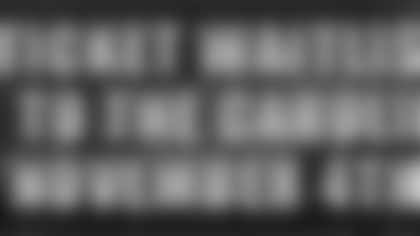Twenty five years ago, the NFL experienced one of its most bizarre sequences, one rivaling the chaotic period when replacement referees stepped in earlier this season.
In 1987, the key figures were replacement players. After the regular players went on strike two games into the season, teams unveiled makeshift squads consisting mostly of unsigned rookies and NFL rejects.
The Redskins made the most of the unorthodox stretch. They were one of only three teams to win all three of their replacement games and held first place in the NFC East at 4-1 mark when it ended.
From there, they captured seven of their last 10 games to finish 11-4 and claim a division title. Then came playoff wins over the Bears and Vikings, before a 42-10 demolition of the Broncos in Super Bowl XXII, the second time in Joe Gibbs' first coaching era in D.C. that the Redskins won the Super Bowl in a strike-shortened season.
The first time was in 1982, when the players carried out the first walkout in NFL history in hopes of acquiring more of the television revenue, among other demands. Few imagined it at the time, but there would be no football for 62 days. Eight weeks of games were eliminated.
In 1987, talk of a possible strike mushroomed during the exhibition season. The National Football League Players Union (NFLPA), upset over terms of the collective bargaining agreement, set a strike deadline of Sept. 22, right after the second week of play. The owners voted to play with anyone who crossed the picket line in case of a strike.
"The players association thought they had the upper hand in negotiations, and their mantra was that they are the game," said John Kent Cooke, the Redskins' executive vice president at the time and the son of then-owner Jack Kent Cooke. "We decided to have replacement squads just to show the regular players they were not the game, but an integral part of the game, and that the league would go on no matter who the players were."
The Redskins split their first two games, beating the Eagles and losing to the Falcons. Backup quarterback Doug Williams, who replaced an injured Jay Schroeder in the first quarter of the Eagles' game, posted solid statistics both weeks. He later played a monstrous role in the Redskins' post-season run and was named Super Bowl MVP.
True to their word, the players walked off the job after the second week of play, demanding higher salaries and a more player-friendly form of free agency. At the same time, the owners implemented their plan to use replacement players for games that would count in the standings, unlike the 1982 strike when competition just stopped.

Redskins management was prepared. General manager Bobby Beathard and his staff led efforts to locate and sign replacement players while a week of the regular schedule was cancelled.
"That was almost like another draft," Beathard said. "It was a lot of fun."
Suddenly, obscure names represented the burgundy and gold. They included quarterbacks Ed Rubbert and Tony Robinson, wide receiver Anthony Allen, running backs Lionel Vital and Wayne Wilson, tight ends Craig McEwen and Joe Caravello, punt returner Derrick Shepard, offensive linemen Darrick Brilz and Eric Coyle, and defensive linemen Dan Benish and Steve Martin. Allen, McEwen, Caravello and Shepard were among those who later made the regular roster.
The Redskins' replacements won their first two games, 28-21 over St. Louis at RFK Stadium, where Allen amassed a team-record 255 receiving yards, and 38-12 over the Giants in the Meadowlands.
Disgruntled union players throughout the league then decided they'd seen enough. They opted to return to work after a 24-day layoff without any of their demands being met.
The major networks were televising the action and many of the games drew modest crowds, circumstances that "broke our backs," said Redskins linebacker Neal Olkewicz, the team's player representative at the time to the NFLPA. He said the regulars resented the replacement players, who were mockingly called "scabs."
"They basically hurt our cause, so we weren't happy about that," Olkewicz said. "We understood that they were marginal guys who were just trying to make a living. It wasn't a fun time. We caved in."
Redskin safety Mark Murphy, the team's NFLPA rep during the 1982 strike and an executive with the union in 1987, said the owners learned from the first walkout.
"They had to come up with something to negate the effectiveness of the strike," Murphy said. "We felt at the time the replacements would risk the credibility of the NFL, but they were effective in the sense that they allowed the owners to continue to have the games on TV. It put a lot of pressure on us, and players started crossing the picket line."
Although the regulars returned to work on Oct. 15, three days before another Sunday of football games, the NFL ruled they had to sit out one more week. With another chance to display their talents, the "Scabskins" pulled off an emotional 13-7 win over the Cowboys in a Monday night game at Texas Stadium, one of the greatest upsets in NFL history.
Dallas played with a host of regulars who'd crossed the picket line, including future Hall of Famers in running back Tony Dorsett and defensive tackle Randy White. The Redskins, on the other hand, were the only NFL team where no players crossed during the replacement series.
When Rubbert went down in the first quarter with an injured shoulder, things looked bleak for the Redskins. But Robinson, a Heisman Trophy candidate during his days at Tennessee who was on a work furlough from prison after a cocaine conviction, filled in admirably with 11-of-18 passing for 152 yards with two interceptions.
By the time it was over, no team better exemplified the bittersweet experience of the replacement series than the Redskins. In fact, a movie modeled after the replacement team's remarkable run hit the screens in 2000. Its name: "The Replacements."
The drama-comedy starred Gene Hackman as the coach (Jimmy McGinty) and Keanu Reeves as the quarterback (Shane Falco) of the Washington Sentinels, a motley squad of scabs that went 3-1 while the regulars were on strike.
The final game, a 20-17 win over Dallas, ended the regular season and put the Sentinels in the playoffs. Interestingly, action scenes were shot at the Ravens' home field, then known as PSI Net Stadium.
But don't forget the real Redskin replacements. There will never be another NFL team like that one.
[

](http://www.redskins.com/tickets/season-ticket-waitlist.html)
Mike Richman is the author of *The Redskins Encyclopedia and the Washington Redskins Football Vault. He was on the blue-ribbon panel that played a key role in selecting the 10 new names who are part of the Redskins' 80 Greatest team unveiled this season, also known as the "10 for 80." His web site is www.redskinshistorian.com and his email is mikerichman@redskinshistorian.com.*
.
.
.*
*






